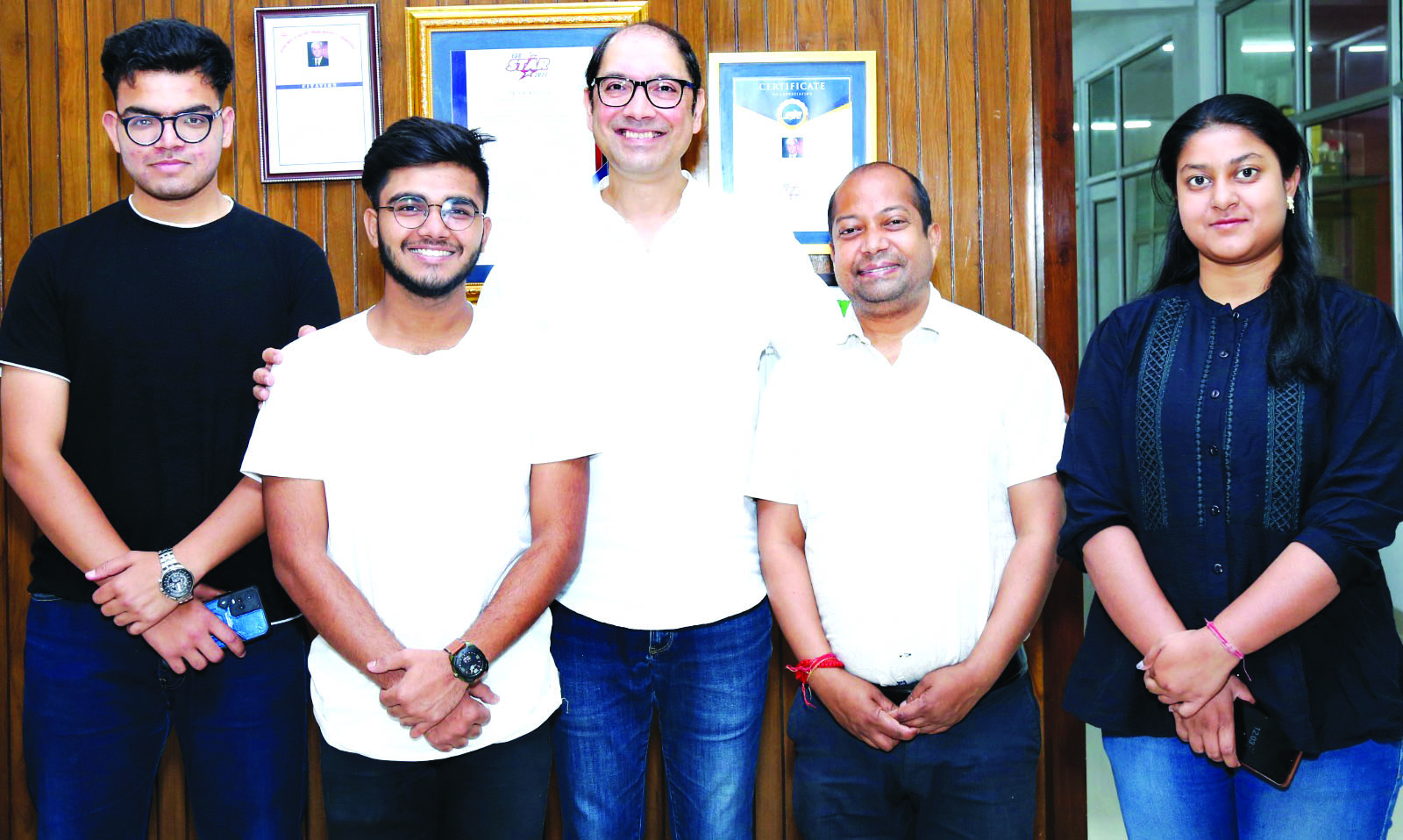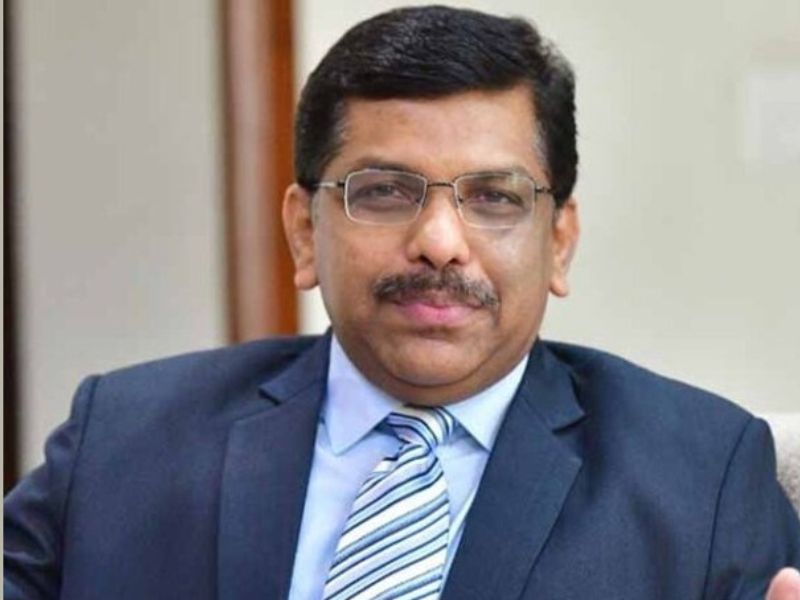Prachi Bhardwaj (Delhi)

Palshikar (left) & Yadav: academia & media stir
Even as the national council of Educational Research and Training (NCERT) — the country’s largest school textbook publisher — is struggling with writing textbooks to implement the 623-page National Curriculum Framework for School Education 2023 prescribed by a steering committee chaired by Dr. K. Kasturirangan, author of the National Education Policy (NEP) 2020, two highly respected academics — Suhas Palshikar and Yogendra Yadav — have written to NCERT to remove their names from all NCERT political science textbooks listing them as advisors.
The two academics have resigned in protest against NCERT having excluded all references to the Mughal era (1526-1865), the Emergency (1975-77) imposed by the late prime minister Indira Gandhi, literary contribution of Dalit writers, Gujarat communal riots (2002) and Naxalite movement from revised sociology and political science textbooks for classes IX-XII. The academics say they were neither informed nor consulted about these revisions.
“Textbooks cannot and should not be shaped in this blatantly partisan manner and should not quell the spirit of critique and questioning among students of social sciences. These textbooks as they stand now do not serve the purpose of training students of political science in both the principles of politics and the broad patterns of political dynamics that have occurred over time,” they wrote in the resignation letter.
These resignations have created a stir in academia and the media because Palshikar and Yadav are highly respected academics. Palshikar is a former professor of political science at the high ranked Savitribai Phule University, Pune and chief editor of Studies in Indian Politics while Yadav is a former member of the National Advisory Council of the UPA-Congress government, a prominent television commentator and promoter-president of the Swaraj India Party.
Following Palshikar and Yadav’s resignation, 33 academicians including Pratap Bhanu Mehta, the well-known public intellectual, Radhika Menon (Delhi University), Nivedita Menon (Jawaharlal Nehru University), Kanti Prasad Bajpai, Vice-Dean at the National University of Singapore, and former JNU professor Rajeev Bhargava have called out NCERT for “jeopardising the collective efforts” of the Textbook Development Committee (TDC) of the year 2006-07. In a letter to Dinesh Prasad Saklani, Director of NCERT, they have raised concerns about the potential negative impact of the recent rationalisation process on their collaborative and innovative work as part of the TDC.
In response to Palshikar and Yadav’s resignation letter, NCERT has declined their request to remove their names. “Textbooks at the school level are developed based on the state of our knowledge and understanding on a given subject. Therefore, at no stage individual authorship is claimed, hence the withdrawal of association by any one is out of the question,” says a NCERT circular issued on June 9. Moreover, NCERT spokespersons say that children’s curriculum load had to be reduced because of the prolonged closure of schools — averaging 82 weeks nationwide — during the Covid-19 pandemic.
However, these explanations have cut no ice with the two academics because of the similarity between the omissions in the revised textbooks and Hindu majoritarian philosophy and electoral rhetoric of the BJP which rules at the Centre. It’s hardly a coincidence that the excised chapters include omission of almost three centuries of Muslim Mughal rule over India, the assassination of Mahatma Gandhi by Nathuram Godse, a member of the RSS (Rashtriya Swayamsevak Sangh), the ideological mentor organisation of the ruling BJP and the Gujarat riots of 2002 which claimed 1,044 lives (mostly Muslims) while Narendra Modi (now prime minister at the Centre) was chief minister of Gujarat.
Meanwhile within academia, there’s rising apprehension about the BJP at the Centre and in the states packing organisations such as NCERT, ICHR and numerous regulatory councils and committees decreed by NEP 2020. “This is a process that has already begun and can’t be stopped unless the BJP loses General Election 2024 next summer, which seems unlikely,” says an NCERT committee member who prefers to remain anonymous.
QS Rankings 2024 surprises
Autar Nehru (Delhi)

Khosla (centre right): research focus outcome
The 20th edition of the qs world University Rankings 2024, released on June 28 by UK-based universities ranking agency Quacquarelli Symonds (QS), featuring 1,500 institutions in 104 countries including India, contains a big surprise.
The off-the-beaten track underdogs Shoolini and Chandigarh universities are jointly ranked India’s #1 private universities, ending the two-year rule of the O.P. Jindal Global University, Sonipat (JGU, estb.2009). In the QS overall rankings both these universities are ranked in the 771-780 band; the privately promoted Vellore Institute of Technology in the 851-900 band, and the Birla Institute of Technology & Science, Pilani, Manipal Academy of Higher Education (MAHE), JGU and Thapar Institute of Engineering, Patiala, all in the 951-1000 band. Amity University which topped the EducationWorld 2023-24 rankings of private multidisciplinary universities is in the 1001-1200 band.
In QS 2023, JGU was ranked in the 651-700 band, MAHE in 751-800, and Chandigarh and Shoolini in the 801-1000 band, i.e, first, second and third among private universities in India.
Atul Kholsa, Vice Chancellor of the Shoolini University of Biotechnology & Management Sciences, Bajhol, Himachal Pradesh (estb.2009), is delighted with the India #1 rank conferred upon it by QS this year. “I am very pleased that we’ve been recognised by QS as India’s #1 private university. I attribute this to our sharp focus on research and innovation in science and technology. If you dissect the QS 2024 rankings further, you’ll learn that we are ranked among the Top 50 — #39 — for the number of publications in respected referred journals on the approved list of Elsevier-Scopus. Moreover in the past year, we have filed 1,300 patents and our faculty is engaged in research collaborations with 200 universities worldwide in subjects such as telecom, fibre optics connectivity, water management and climate change,” says Khosla.
Although O.P. Jindal Global has been obliged to concede its #1 ranking among India’s private universities in QS 2024, Dr. C. Raj Kumar accepts this verdict sportingly. “I think this year, QS has given greater weightage to achievement in STEM subjects and research. But I am quite content with our #1 ranking among private liberal arts & humanities universities in the EducationWorld 2023-24 league table,” says Raj Kumar.
In this connection, it’s pertinent to note that the annual EducationWorld India Higher Education Rankings rate and rank government and private universities in discrete and separate league tables — multidisciplinary, engineering & technology, medical and health sciences, and liberal arts and humanities to avoid apples and oranges type comparisons — perhaps a more sophisticated methodology.
Acknowledging the contribution of private HEIs which account for 70 percent of India’s higher education sector, Dr. Pankaj Mittal, secretary-general, Association of Indian Universities (AIU), says that Shoolini University’s India #1 private university ranking is well-deserved. “Shoolini has set an example with its focus on inter-disciplinary research. The majority of India’s private universities are focusing on improving and enhancing the quality of education delivery, this will help raise standards of higher education across the country,” says Mittal.
Be that as it may, in the QS global rankings 2024, Central government universities are ranked highest. IIT-Bombay is India’s top-ranked university at #149 and Asia #1 with the country’s 23 IITs dominating the latest QS league table which accords ranks upto 500 and ‘ranking bands’ thereafter. IIT-Delhi is at #197, IIT-Kharagpur (#271), IIT-Kanpur (#278), IIT-Madras (#285), IIT-Guwahati (364), IIT-Roorkee (#369), and IIT-Indore (#454). The Indian Institute of Science (IISc), Bangalore, ranked #155 last year has been demoted to #225 in QS 2024.
























